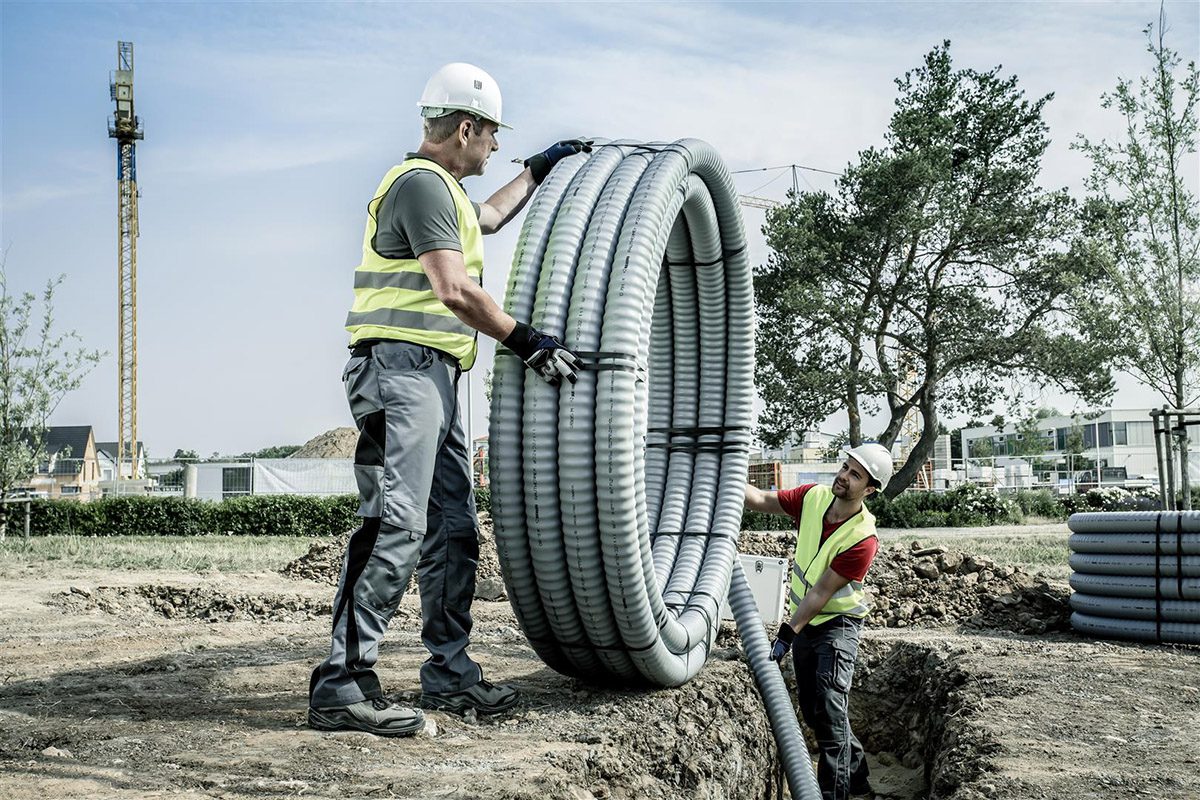
With decarbonisation legislation continuing to tighten in the UK, a polymer specialist has carried out a CO2 emissions analysis for contractors to measure emissions accrued from transporting district heating pipework and plumbing pipework to construction sites.
REHAU has highlighted these findings, in which emissions can be lowered by up to 67% through informed material choice, in order to raise awareness of the hidden environmental costs of construction, including transportation. Based on data from the CarbonCare emissions calculator and informed by BS EN 16258 standards for environmental management, the analysis approximates the weight of polymer versus traditional materials systems using industry averages.
The analysis uses a typical journey from London to Manchester to estimate transportation emissions in two scenarios and further improve contractor decision-making processes – firstly with polymer versus steel district heating pipes, and then against copper plumbing pipes. As the construction sector is reviewing all its processes to see how best to meet ambitious decarbonisation targets, this material use and its associated carbon emissions is coming under the spotlight, says Steve Richmond, Head of Marketing and Technical at REHAU Building Solutions.
“The whole construction industry is in a process of rapid decarbonisation, and while this is welcome news, there are certain its processes that are being overlooked as part of this,” explains Steve. “Material transportation is a great example of a topic that does not get the consideration it deserves, as carbon emissions are often only measured once products are on site.
“However, this should not be the case – all components, large and small, must arrive at district heating and plumbing projects through some form of freight, even if these parts are made in the UK. It is therefore crucial that specifiers select lighter, high-performance materials and solutions if they are to further reduce emissions in line with stringent sustainability targets.”
In the case of district heating pipework, the analysis found that polymer pipes can cut carbon emissions by up to 67% against steel for the sample projects REHAU reviewed. For plumbing, MLCP pipes can reduce the carbon emissions from freight by up to 35% – key savings when taking into account 2050 net zero targets brought forward by initiatives such as the Government’s Sixth Carbon Budget.
“As further emphasised in the analysis, it is beyond dispute that the weight of a material does have a significant impact on carbon emitted during transportation,” concludes Steve. “For example, polymer pipes are significantly lighter than their copper and steel counterparts, and this is reflected in their reduced pollutive potential when in transit.
“All organisations in the supply chain must therefore be aware of the savings available through opting for less cumbersome materials. While information such as Environmental Product Declarations are vital to ascertaining the sustainability benefits of certain products, we need to provide additional data across an entire project, including transportation, on-site and post-construction, ongoing building emissions.
“By building up a clearer picture, we can help contractors make better decisions that make the construction sector more environmentally friendly and better able to hit net zero targets. This analysis is a key step towards that goal, and we encourage contractors working on heating and plumbing systems to make use of it where they can.”
For more information about the new emissions analysis, click here.







